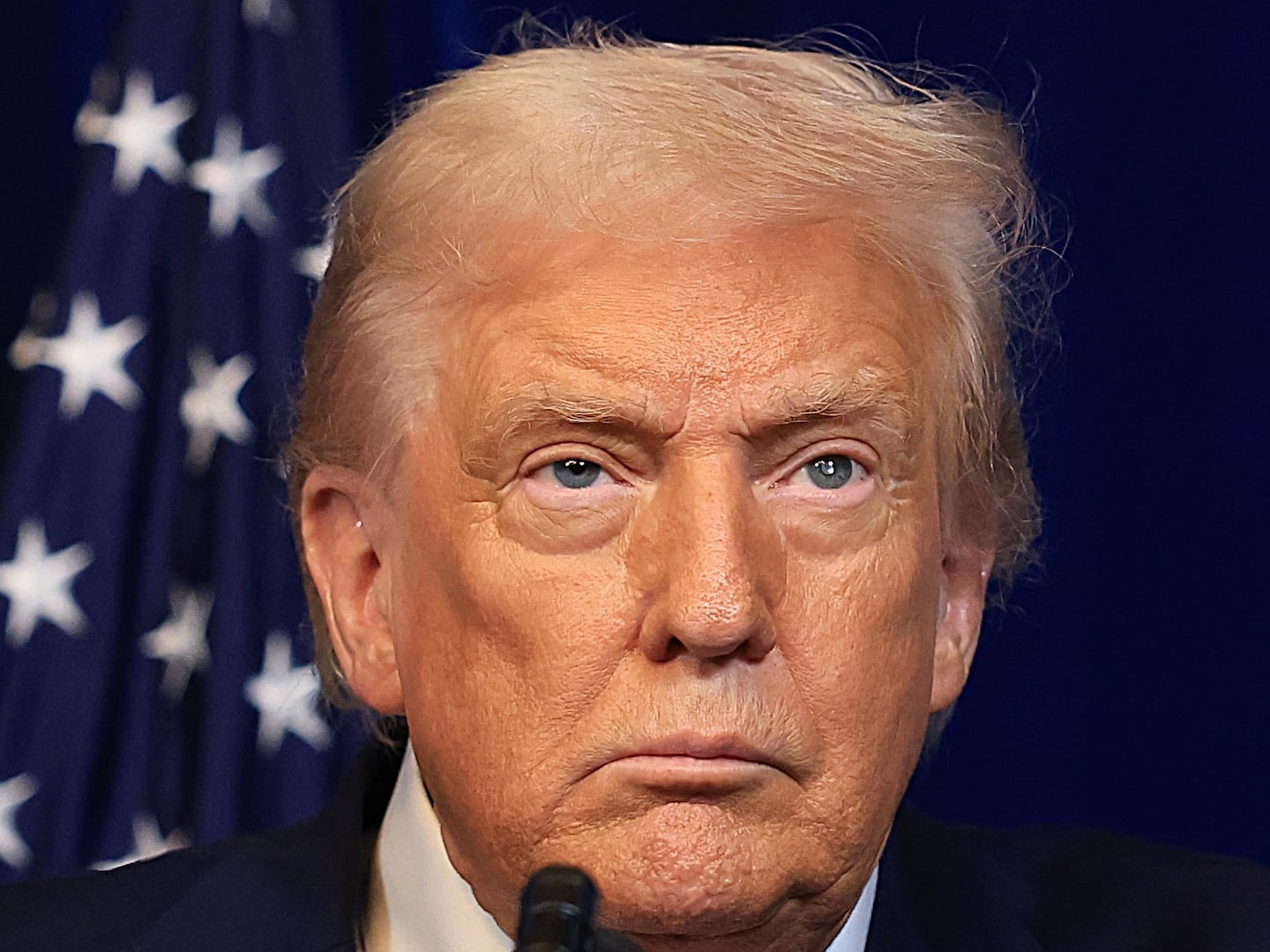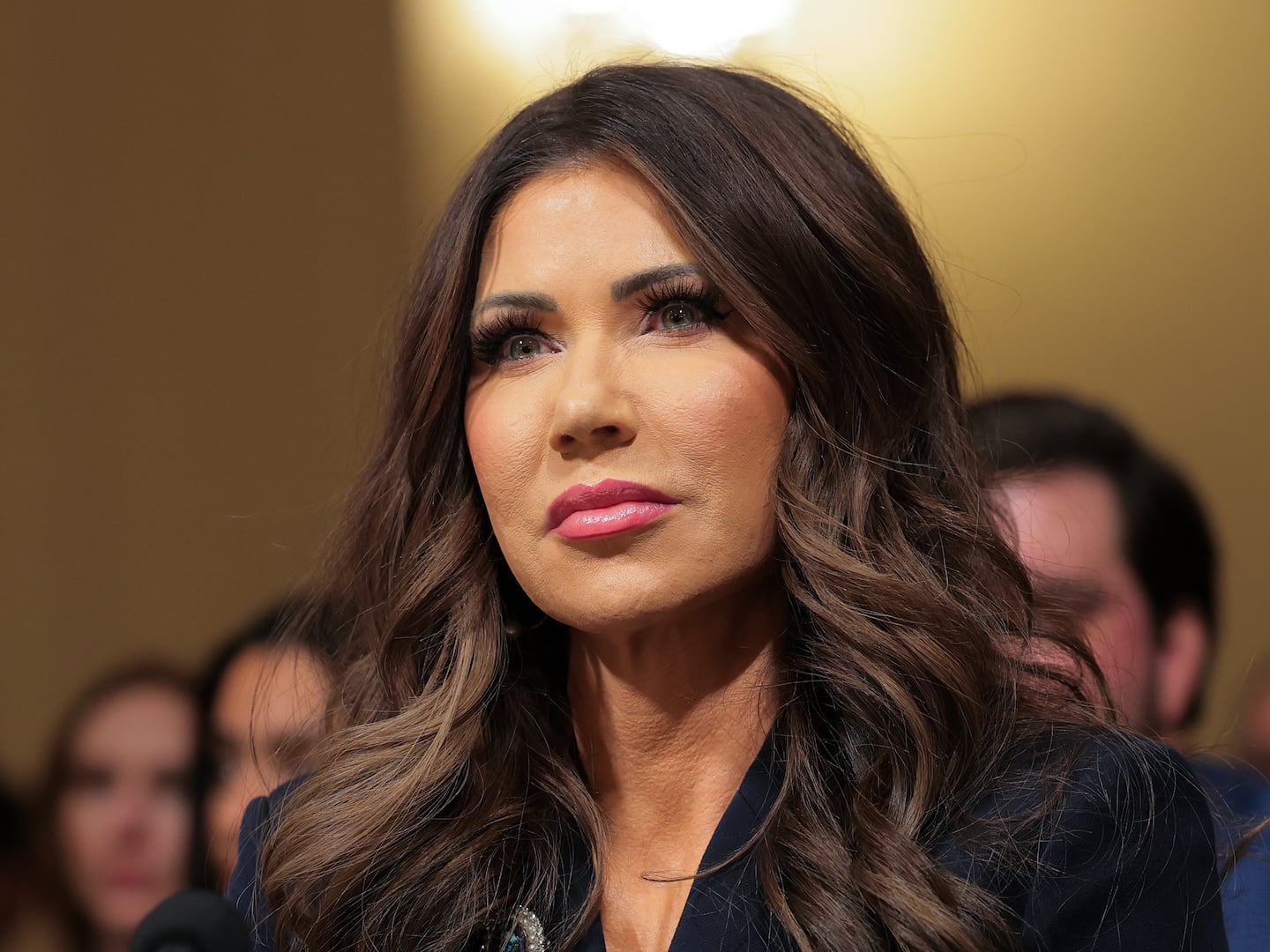Simon Cowell wants to bring his third talent show, X Factor, to the U.S. Venetia Thompson says we can expect strippers and boy twins who sing Britney songs.
It was Sunday night, and special guest performer Whitney Houston was strutting across the stage, her floor-length gown shimmering. Suddenly the back of her dress pinged open and she stopped, eyes wild. Then, Houston shrugged exasperatedly at the judges, before continuing when she realized that no one could help her.
It was just another YouTube moment for the sixth season of The X Factor.
Simon Cowell’s hit U.K. talent show, eagerly anticipated all summer, is dominating the hotly contested Saturday ratings, as well as its prime Sunday night slot for the results show. In past seasons, it has given us Leona Lewis, a massive international success, and Alexandra Burke, who has yet to make it over the pond. Burke was dubbed the U.K.’s answer to Beyoncé after the two had an emotional duet in last year’s live finale—Beyoncé sang, Burke wailed hysterically.
Cowell wants The X Factor to be launched in the U.S. He has reportedly refused to renew his American Idol contract unless Fox agrees to roll it out as part of the deal. But despite months of negotiations and endless rumors that Cowell and Fox have come to an agreement (reported to be in the shape of £65 million, or more than $100 million), no official announcement has been made.
Meanwhile, here in Britain, The X Factor is increasingly farcical each week.
So far this season, Dannii Minogue (sister of Kylie) has managed to “ out” one of the contestants, much to Cowell’s horror, and a girl band (yes, on X Factor, groups are allowed) made up of ex-pole dancers were told by the two bitchy female judges that they were dressed too provocatively to be taken seriously. Worst of all, last Sunday night in the results show, two of the best acts in the competition somehow ended up in the bottom. Danyl Johnson, whose first audition has already made him a YouTube sensation, and Miss Frank, a motley crew of girls. It was Miss Frank who finally ended up exiting after the judges couldn’t come to a unanimous decision about who to send home, and it went to “deadlock”—back to the original public phone-voting results.
Talent shows left open to the public have always thrown up inexplicable results, but The X Factor seems to be particularly prone to dissolving into bad cabaret. The show’s format—consisting of four categories, divided into “girls,” “boys,” “over 25s” and “groups,” all mentored by a different judge—means that the audience is left trying to compare the incomparable. The talentless, bizarre 17-year-old Irish twins, John & Edward Grimes, whose Britney Spears cover, complete with red latex and giant inflatables, Cowell described as “the worst live performance I have ever sat through” are put up against the sublime Danyl Johnson, whose performances Cowell frequently describes as “the best I have ever seen.” Miraculously, John & Edward make it through week after week, whereas Johnson ends up narrowly avoiding getting sent home, leaving Cowell baffled.
The success of “Jedward” is likely because viewers feel sorry for them when Simon bashes them—especially after it was revealed that they were born premature and nearly died—but also because they provide genuine spectacle and comic irony in a show that has a tendency to take itself too seriously.
But Johnson’s brush with X Factor death led to crisis talks backstage after Sunday’s results show: Britain’s got talent, and it appears the public has little interest in supporting it.
The talentless, bizarre 17-year-old Irish twins, John & Edward Grimes, whose Britney Spears cover, complete with red latex and giant inflatables, Cowell described as “the worst live performance I have ever sat through” are put up against the sublime Danyl Johnson, whose performances Cowell frequently describes as “the best I have ever seen.”
There is clearly something wrong with the X Factor formula—trying to straddle the precarious gap between America’s Got Talent and American Idol has resulted in a show that is rapidly becoming neither entertaining nor brimming with future pop stars. Dividing the contestants into mentored categories, while originally a novel concept, is now a complete waste of time: Unsurprisingly, everyone wants to be mentored by Cowell, and it is widely acknowledged that to win, and more importantly, stand any chance of world domination, you need to be a solo act, rendering the ill-fated groups totally surplus to proceedings.
After the departure of Sharon Osbourne in 2007, amid rumors of her having taken a severe disliking to Dannii Minogue, the show’s future looked uncertain—that is, until Cheryl Cole was brought in last season and ratings soared. The star of girl group Girls Aloud, and wife of Chelsea and England footballer Ashley Cole, Cheryl has left behind her rough Newcastle council estate roots and somehow morphed into a Vogue cover girl. But it hasn’t been an easy journey. She was labelled a racist by the gossip press when she was accused of “racially aggravated” assault, after giving a black eye to a nightclub toilet attendant in 2003. (The “racially aggravated” label was eventually dropped, and she was later charged with “assault occasioning actual bodily harm.”)
Then her marriage momentarily collapsed last year when it was reported that Ashley had cheated on her, but all was eventually forgiven and her $150,000 ring returned to its rightful place. Her first solo single, aptly titled “Fight for This Love,” has been the fastest-selling U.K. record of the year and she is now setting her sights on the U.S.
But Cheryl alone cannot save X-Factor. In six seasons, only Leona Lewis has achieved anything vaguely resembling success, and all eyes are currently on last year’s winner Alexandra Burke to see if she can be the second victor to hit it big. American Idol has, of course, spawned countless household names and billboard hits and will undoubtedly continue to. Even if Cowell brings Cheryl—complete with subtitles, her Newcastle accent can verge on incomprehensible—to judge The X Factor in the U.S, it is unlikely that the show will usurp Idol as the talent show of choice.
There are, of course, elements of The X Factor that work well and keep the country riveted. The “judges’ houses” stage, during which we see the shortlisted contestants visit their respective mentors at their exotically located homes. (These are bogus locations, of course, but the illusion of Dannii Minogue’s pad in Dubai is entertaining enough.) During this phase, without Simon providing guidance, watching the stricken faces of Cole, Minogue, and Louis Walsh (the fourth judge, who is the king of Irish boy bands) trying to make the right decisions about which three acts to each take through to the live shows is fantastic television.
The last thing that America needs is another reality-TV talent show, but Fox cannot afford to lose Cowell from American Idol, so they are going to have to find a way to make The X Factor work in the U.S. Simon’s first move should be securing Cheryl Cole, and ensuring that her hair and outfits gets even bigger. But his trump card would be to bring back the much-loved and much-fired Paula Abdul, as has been rumored. We can only hope that there is enough talent to go around.
Venetia Thompson is a freelance journalist and regular contributor to The Spectator. Her memoir, Gross Misconduct, will be published in February by Simon and Schuster UK. She lives in London.






